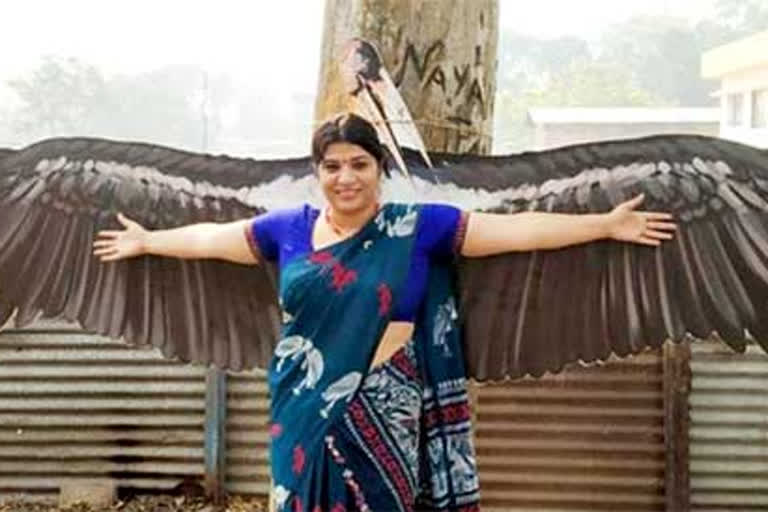Dispur: Purnima Devi Burman, a young woman bird conservationist from Assam was prepping for her Ph.D. in Zoology when she noticed the loss of habitat for the endemic Hargila stork. 'Hargila' means bone-eating bird (these storks even eat whole bones in some cases). At once, Purnima shelved her research program and concentrated on the task at hand, that is, the conservation of the stork.
Fifteen years down the line, the young bird lover has set up a team of 10,000 local women, the 'Hargila Army' for the conservation of the endemic bird, and won accolades. Purnima, who is working as Senior Project Manager of the Avifauna Research and Conservation Division, has worked extensively towards the conservation of the adjutant storks locally known as Hargila.
This is a rare species of stork found only in the states of Assam and Bihar. She recently won the 'Champions of the Earth' award from the United Nations in recognition of her services. The woman bird conservationist has also been given the title 'Hargila Baidu' (Stork's Sister) by the local people. Purnima, who hails from Brahmaputra river basin area in Assam, grew up with her grandmother from the age of five while her parents were away for work.
Purnima's grandmother, who realized her granddaughter's loneliness, used to take her to the fields to appreciate the diversity of birds and sing songs for them. Thus Purnima had a love for nature and birds since childhood. After doing a master's in zoology, she wanted to do her Ph.D. on the local adjutant storks.
Also read:Jharkhand forest officer identifies 146 bird species, compiles names in Santhali, Hindi
But she noticed that the number of storks was significantly reduced compared to what she had seen as a child. An inquisitive Purnima wanted to explore the reasons for this. Purnima observed that with increasing urbanization, the storks turned to trees in local villages as their habitat. But the villagers started cutting down the trees around their houses as the storks were carrying garbage along with animal remains to feed the offspring.
Purnima noted that the loss of habitat was the major reason for the declining bird population. As she set out for the conservation work, Purnima had a bitter experience in the process of saving the Hargilas. Purnima remembers that a man cut down a tree near his house to keep away storks, injuring nine Hargila birds in the process.
When she tried to explain to him how much those storks are useful for the environment, the man did not listen. Purnima was surprised when the man got angry and asked her whether she would clean the garbage of storks like a maid. But determined to change the previous opinion on the storks, Purnima formally launched a conservation programme in 2007.
Purnima mobilized the local women to educate people to conserve the storks for which cooking competitions were launched. As the programmes became successful, the number of women attending these programs gradually increased. With this increased bird conservation efforts. The team 'Hargila Army' started setting up special nests for storks and treated the injured birds.
As part of conserving the storks, Purnima has created some special programs for women. During the breeding season of storks, the 'Panchamrut ceremony' is held regularly. Besides, the Hargial Army celebrates the birth of the birdies as another festival. The conservation efforts have borne fruit with the passage of time as the stork population has increased from a mere 28 in 2007 to 250 today. The local government in Assam too has woken up to recognize the campaign and has started supporting it.
